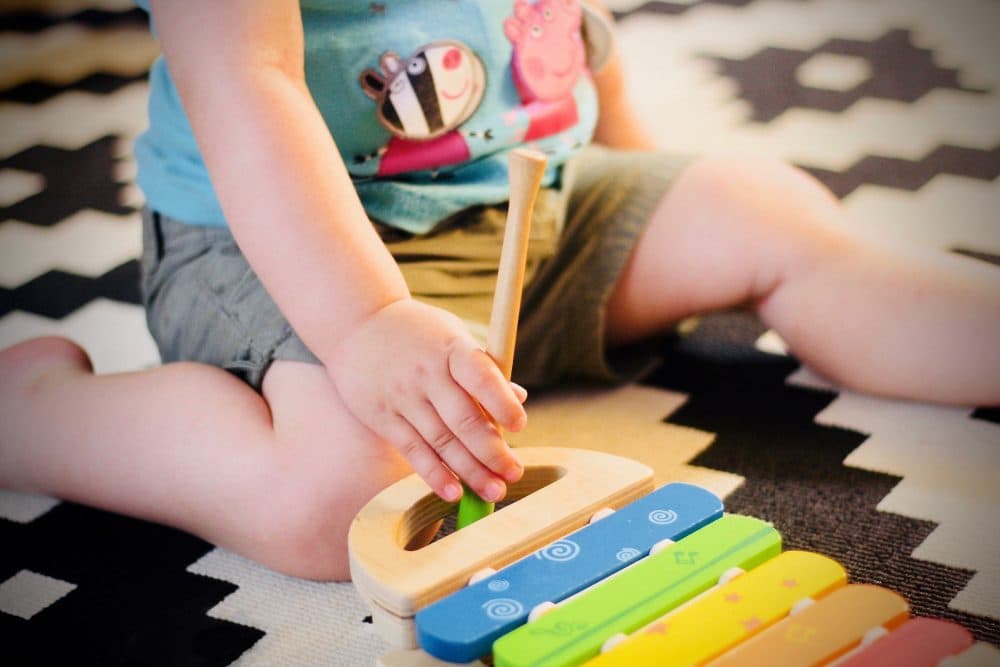Advertisement
'Language Is So Important': Non-Binary/Trans Listener Weighs In On 'Theyby' Discussion

"Is it a boy or a girl?" It's a common question parents of newborns hear. But what if they would rather not say? What if they would rather avoid the projection of gender stereotypes?
What if they want to raise their children without gender designations?
That's the idea behind "theybies" — let children choose their gender identity. And it's how Nate and Julia Sharpe are raising their twins, Zyler and Kadyn.
"The longer that we can delay ourselves kind of forming these preconceived notions of who our kids are going to be and what they're going to be good at, the better," Nate says. "We researched it some more, we found some books that people were in fact doing this, and kind of thought about it more, and then decided, 'Yep, we're going to do this thing.' "
Some think raising children as theybies might be detrimental to the kids, however.
"People are essentially pushing their kids to be trans though. How is that any better?" On Point listener Jacob Harney wrote on Twitter. "Not being honest about biological sex and hiding it from everyone is ridiculous and will cause nothing but confusion for that child."
Lise Eliot, professor of neuroscience at the Chicago Medical School, explained that while boys and girls are not identical at birth, "thus far, we can't pinpoint any dramatic differences in their brains at all."
"Even though we talk about a male brain and a female brain, it really is much more unisex," she says.
During our discussion On Point, we heard from one caller, Ali, who identifies as non-binary/trans, and explained why having this conversation about gender was important to her.
"I am a 45-year-old non-binary/transgender person, so thank you so much for making this episode. Any ease and effort made to understanding who we are is so appreciated," Ali said. "I think, for me, the thing that I find missing most from these conversations is having people on, or chats, with actual trans and non-binary people to learn more about us and who we are. Otherwise, it's cisgender folks deciding our fates without actually being super educated on the experiences themselves."
Ali emphasized that how we talk about gender and what kind of terminology we use is critical in framing the discussion.
"For me, I feel the main thing here that's jumping out for me is language is so important," they said. "So what I'm hearing from a lot of people who are not educated on these topics, they'll use the word 'gender' across the board when still learning the difference between gender and sex, which are totally different things. So I find that using the terms 'sex assigned at birth' and 'gender' are two very good little pieces of language to kind of help us differentiate between those things.
"Changing language for me is really important. Growing up as a little kid who never really felt comfortable as female or male, I always felt isolated when I would hear a class being addressed as 'girls' or 'ladies and gentlemen.' I'm trying to help people use things like 'everybody,' 'friends,' 'pals,' 'folks,' — just super-inclusive. There are ways to change your language around pronouns as well. It's just not a big deal, we just have to think of it that way."
